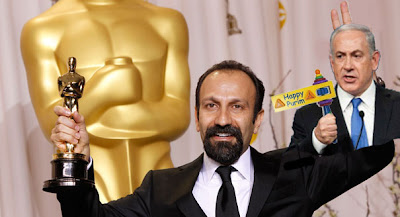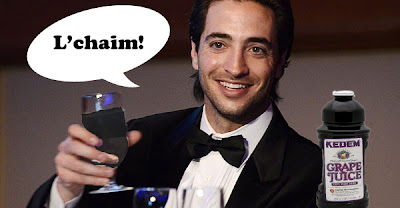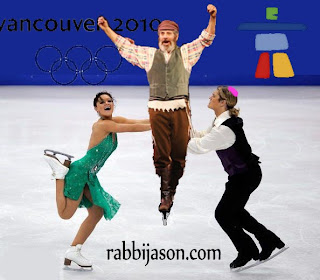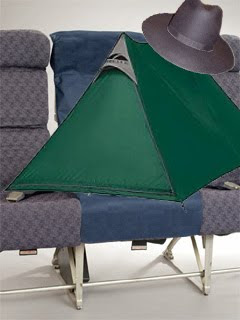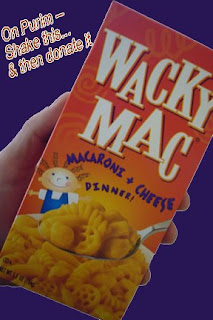But that didn’t mean the Academy Awards didn’t turn into a big Purim Shpiel hosted by Seth MacFarlane. The creator of “Family Guy” and the recent movie “Ted” tried his hand at hosting the Oscars last night. And while the Oscars technically occurred after Purim had ended, there were several odd connections between the award show and the Jewish holiday.
 |
| Seth MacFarlane (Photo Credit: ABC News) |
Seth MacFarlane as Haman
First, I don’t think Seth MacFarlane did anything vicious or spiteful while hosting the Oscars last night. Yes, there were some edgy Jewish jokes, a tasteless Hitler reference and some racial jokes that made many people squirm, but I don’t think anything was over-the-top. The Anti-Defamation League obviously took exception with MacFarlane’s joke that referenced the old Jews Control Hollywood canard. ADL National Director Abe Foxman issued a press release today stating:
While we have come to expect inappropriate “Jews control Hollywood” jokes from Seth MacFarlane, what he did at the Oscars was offensive and not remotely funny. It only reinforces stereotypes which legitimize anti-Semitism. It is sad and disheartening that the Oscars awards show sought to use anti-Jewish stereotypes for laughs.
For the insiders at the Oscars this kind of joke is obviously not taken seriously. But when one considers the global audience of the Oscars of upwards of two billion people, including many who know little or nothing about Hollywood or the falsity of such Jewish stereotypes, there’s a much higher potential for the ‘Jews control Hollywood’ myth to be accepted as fact.
We wish that Mr. MacFarlane and the Academy Awards producers had shown greater sensitivity and decided against airing a sketch that so reinforces the age-old canard about Jewish control of the film industry.
Haman tried to turn Shushan against the Jews by telling people they were a controlling nation. He obviously wasn’t joking around though. What I find interesting is that when Jews win Academy Awards people say that it’s because the Jews control Hollywood, but no one ever claims the Jews control the voting for the Nobel Prize and a disproportional amount of Jews have won those awards over the years.
Jennifer Lawrence as Esther
The Oscar for Best Female Actor in a Lead Role went to Jennifer Lawrence for her performance in Silver Linings Playbook. and very well deserved in my opinion. In the movie she helps redeem Bradley Cooper’s character and in doing so saves his family (from bankruptcy). Lawrence is an unlikely heroine in that story much like the Queen Esther character in the Purim narrative.
That Story in Iran/Persia
Perhaps the most direct connection to the Purim story is in the winner of the Best Movie category. On Sunday, October 14 I had a couple hours to kill on the other side of town between officiating at a funeral and then heading to a hotel to officiate at a wedding. I passed by a movie theater and figured I’d see if the timing worked out for me to watch a movie. Sure enough Argo was just about to begin and would end in enough time for me to get to the wedding. As the credits rolled I predicted Argo would go on to win movie of the year. Even though it was up against fierce competition with Lincoln, Zero Dark Thirty, Silver Linings Playbook, Les Miserables and Lincoln, I had a feeling it would win. Brilliantly directed by Ben Affleck, the protagonist played by Affleck, a modern-day Mordechai, saves the six U.S. diplomats with the help of the Canadian ambassador.
Jewish Man Frees Slaves
Okay, so the Jews weren’t technically slaves in Shushan (Persia), but they had been slaves at one point in Egypt. And the Purim story has the Jewish Mordechai freeing the persecuted Jews. The Best Male Actor award went to the Jewish Daniel Day-Lewis (his mother’s Jewish, look it up!) for his performance of Abraham Lincoln who freed the slaves. Alright, a bit of a stretch there.
The votes are certainly split as to how well Seth MacFarlane did in his first (and only?) attempt as host of the Oscars. I think he’s better suited for R-Rated comedy and Comedy Central Roasts, which make it difficult to adapt to the global audience watching the Oscars. All in all, while MacFarlane didn’t do the greatest job as host, the awards show was fun to watch and I think the right people were chosen to win awards. And for many Jewish people (both those inside and outside Hollywood circles), it was a fun day in which the Purim celebration continued right into Oscar viewing parties. And I’m sure the connections to the Purim story didn’t end when the Oscars telecast ended. There were likely some “After Parties” that resembled a King Ahashverosh feast too.



